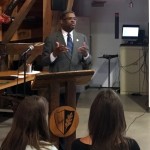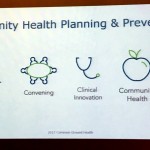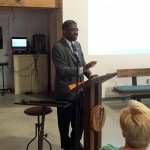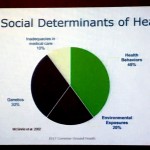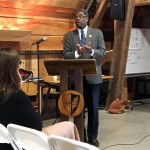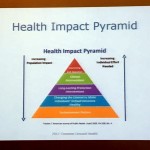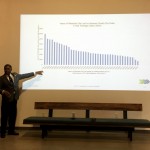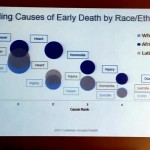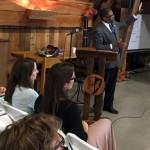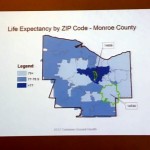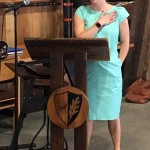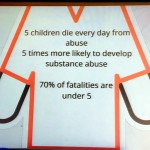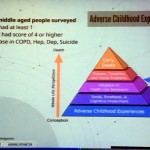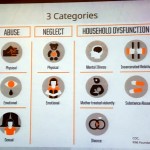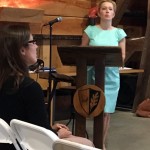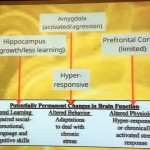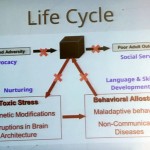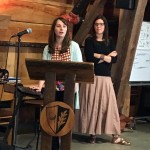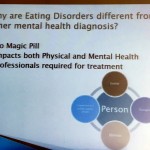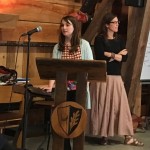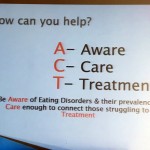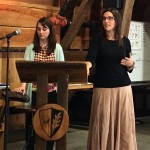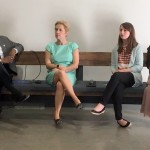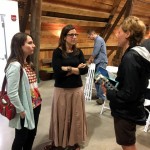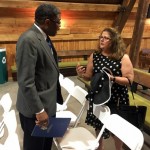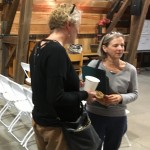You may recall that our Commons Speaker Series event for March was cancelled due to an unruly snowstorm that hit our region. We are grateful that the presenters were all able to arrange their calendars to reschedule their presentation for this past Wednesday, June 21st. The panel drew on local and regional experts in various areas of the medical and health care fields. As we worked to develop the focus of this presentation — community health check up — we all felt overwhelmed by the breadth and depth of topics that fell under the category of health. As reflective of the comprehensive and collaborative nature of the medical field, each presenter decided to focus on one specific area of health, but each then informed and connected seamlessly with the others.
The evening began with Wade Norwood (Harley Parent ’16), Chief Strategy Officer for Common Ground Health, sharing the history of the ground-breaking regional health care in this area that served as a national model in the 1960s. He commented on his past experience and current work providing strategic direction for integrating the agency’s clinical, public health, and prevention programs and overseeing the agency’s programming and processes while building critical partnerships with other regional organizations. He shared Tom Frieden’s health impact pyramid and McGinnis’ model of potential life lost, especially as they relate to the different zip codes in and around Rochester. According to Norwood, “health improvement requires us to address culture and how environment and health behaviors are dynamically linked.”
Dr. Elizabeth Murray was up next to talk about her work as an Attending Physician in the Pediatric Emergency Department of the Golisano Children’s Hospital, but more specifically about her work in the REACH Program within the Bivona Child Advocacy Center as one of the region’s two Child Abuse and Maltreatment specialists. She presented the ACE (Adverse Childhood Experience) factors and pyramid, and walked the audience through a case study of a child she treated. For children who receive an ACE score over 4, their lives are already shortened by 20 years. Dr. Murray addressed the many kinds of abuse, neglect, and dysfunction which can dramatically and negatively impact the physical and mental well-being and growth of children. She shared the many ways that the Rochester health community is working to advocate for these children, provide social services, and nurture their recovery and development.
The final group to share were therapists from The Healing Connection, Victoria LoMaglio, LMHC, NCC (Harley graduate in ‘06), and Alexandra Wilkosz, LCSW. Both Vikki and Ali work to support patients with eating disorders, helping with recovery and the motivation for recovery. They explained the different kinds of eating disorders (and binge eating has just been added to that classification recently) and the impact they can have on a person’s physical and mental health. They believe that eating disorders are diseases of disconnection. Their organization, The Healing Connection, offers a variety of treatment options, depending on the severity of the condition. As they shared about their work, it was easy to draw the line of connection from adverse living environment to abusive or self-harm situations to the need for direct intervention and support of individuals who face such difficulties.
At the end of the individual presentations, the four experts formed a panel to answer questions from the audience. While the attendance was a bit sparse, the questions from the people in the audience were deep and probing, ranging from providing meals for children living in poverty to self-care to resources for schools and educators.
